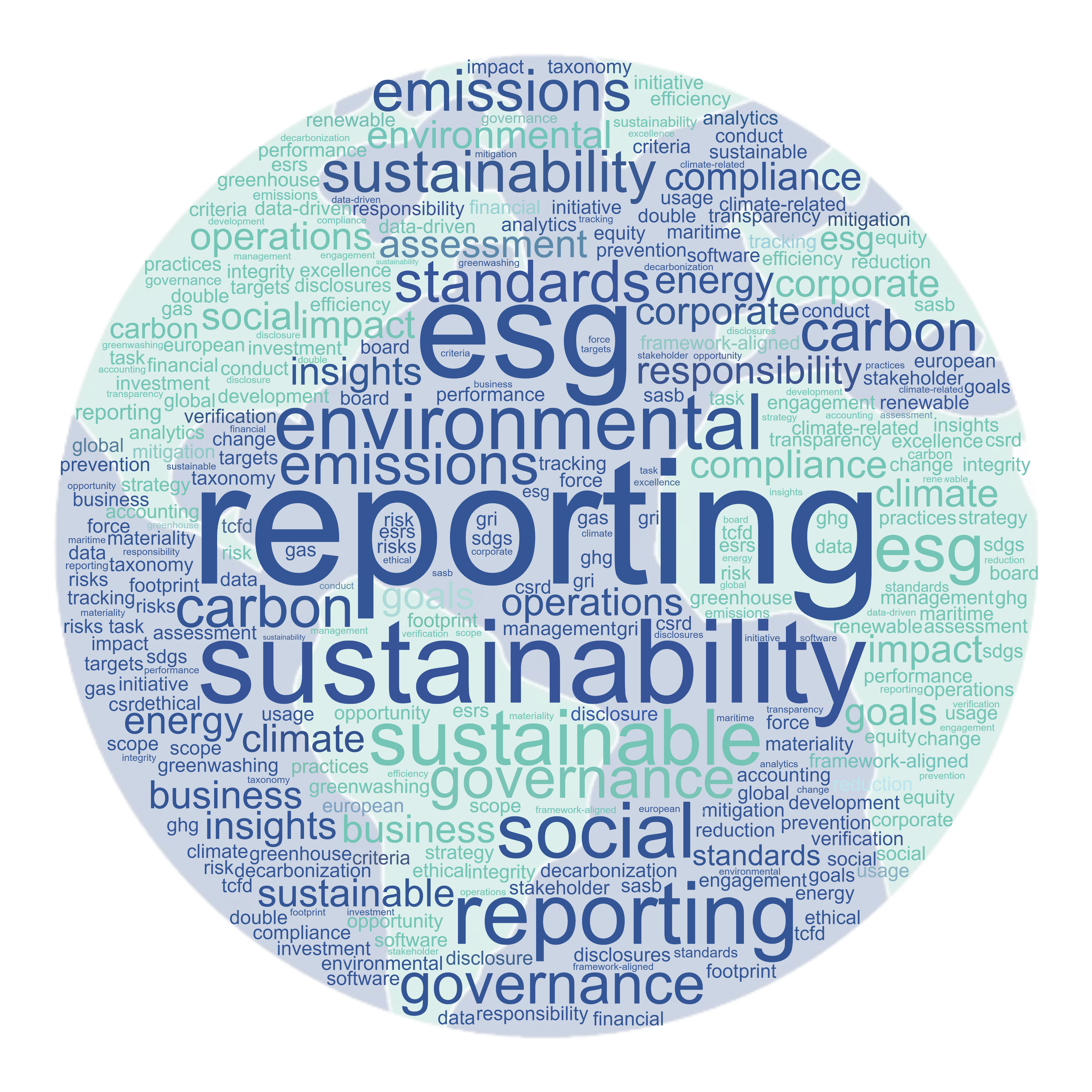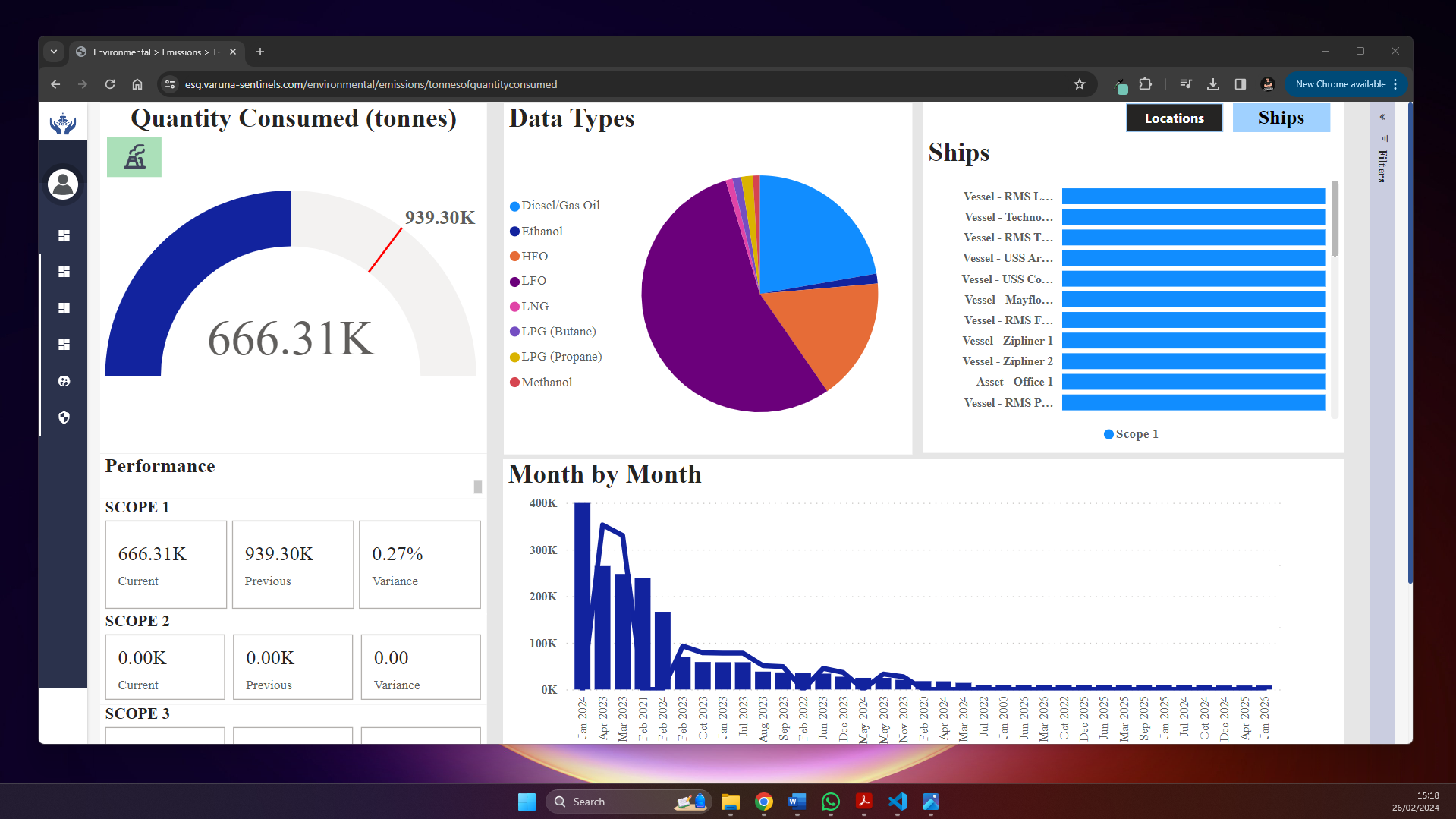Scope of GHG Emissions Reporting:

Utilize accurate and framework-aligned data to inform strategic decisions, embedding ESG values into your corporate strategy for sustainable business practices.
Leverage cleaned and organized data to systematically identify ESG risks and opportunities, enabling strategic evaluations to enhance financial performance and resilience.
Set clear ESG targets using precise KPIs derived from clean data, formatted as per global standards (TCFD, SASB, GRI, ESRS), for effective tracking and achievement of sustainability goals.
Ensure transparent and accurate ESG reporting through meticulous data cleaning and standardized formatting, fostering trust and meaningful engagement with investors, customers, and the community.
We prioritize data integrity through rigorous procedures in collecting, monitoring, and cleaning ESG data, establishing a trustful foundation for stakeholders and enabling informed sustainability decisions.


Our reports are meticulously aligned with leading standards such as SASB, GRI, and ESRS, ensuring comprehensive coverage that highlights industry-specific insights, impact-focused narratives, and adherence to regulatory requirements, offering stakeholders a clear and holistic view of our sustainability efforts.
Utilizing cutting-edge analytics, we not only uncover current ESG trends but also forecast potential opportunities and challenges. This proactive approach informs our strategic ESG decision-making, setting the stage for forward-thinking reporting and actions.


We are dedicated to transparency, regularly sharing detailed reports on our ESG achievements and areas for growth. Our commitment extends beyond reporting; we engage with stakeholders through forums and discussions, ensuring a broad understanding and incorporating diverse perspectives into our sustainability journey.
Informed by detailed trend analysis, we initiate specific improvements that directly contribute to sustainable business growth. These actions, rooted in data-driven insights, reflect our dedication to evolving our ESG performance, demonstrating real progress and commitment to a sustainable future.
